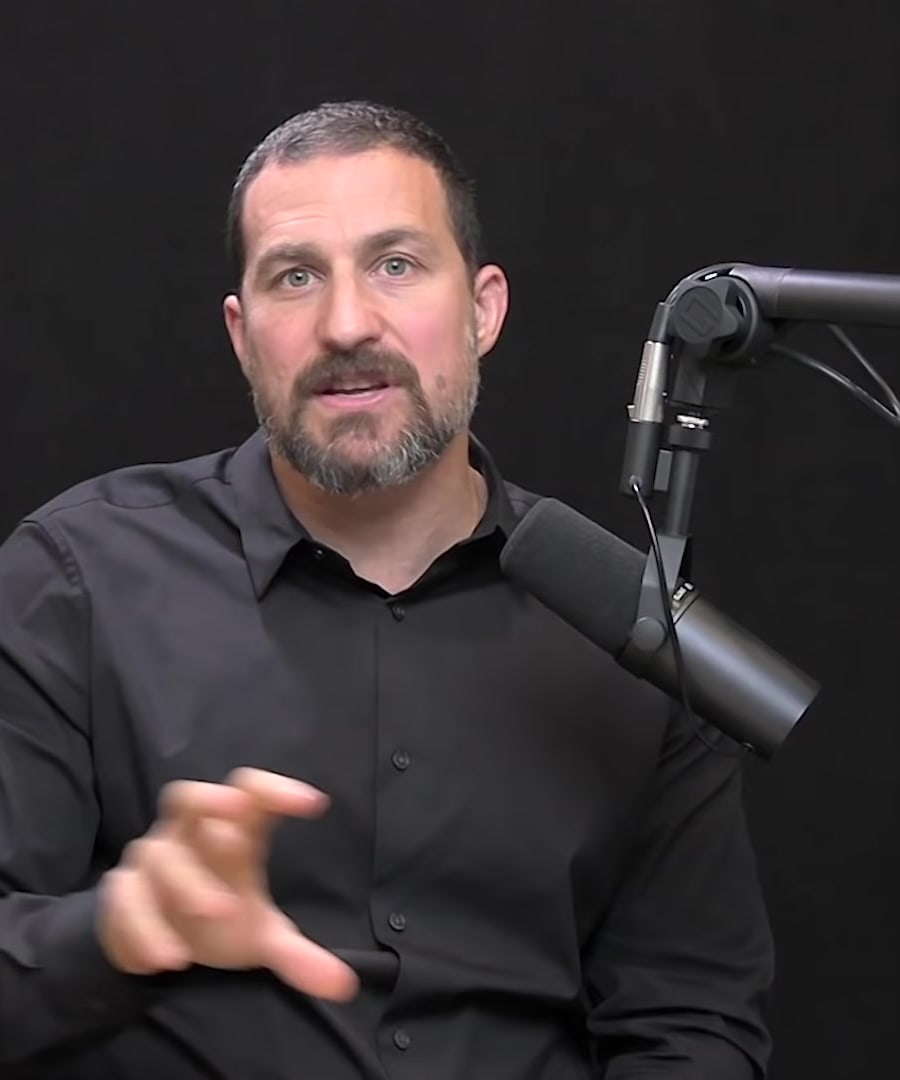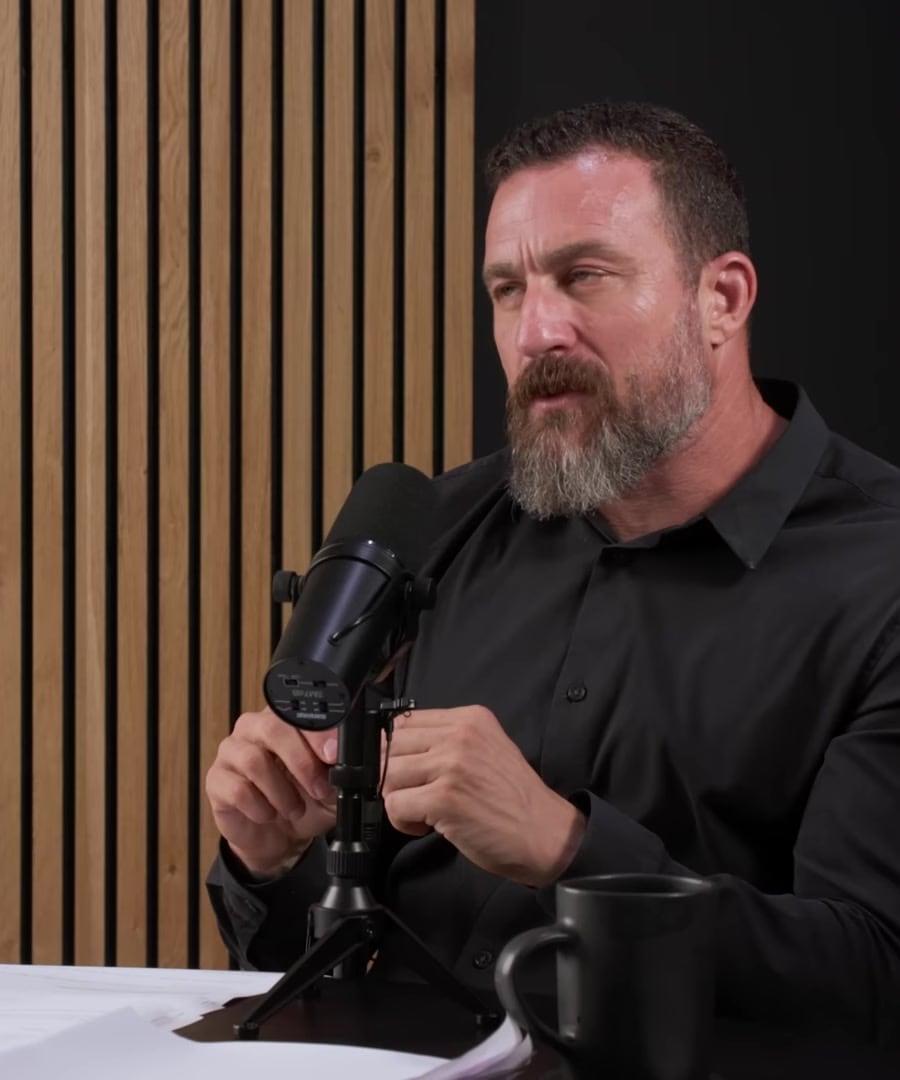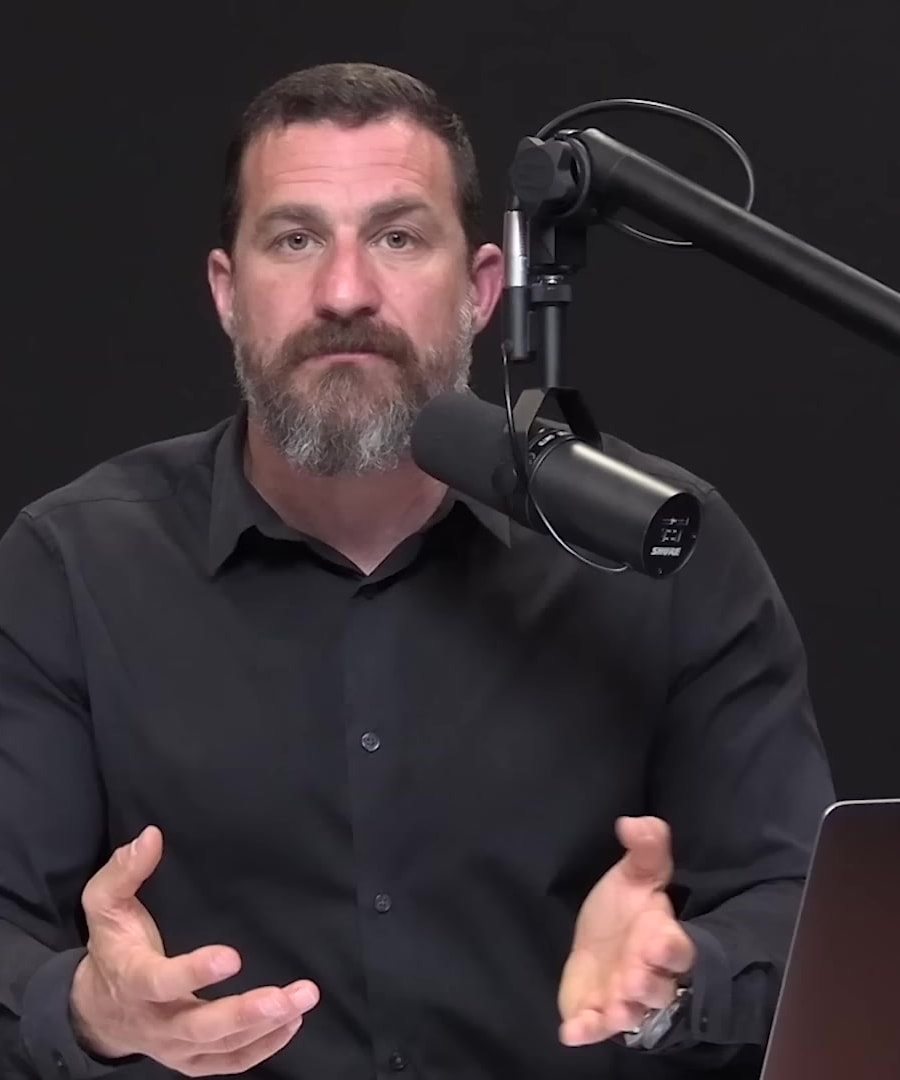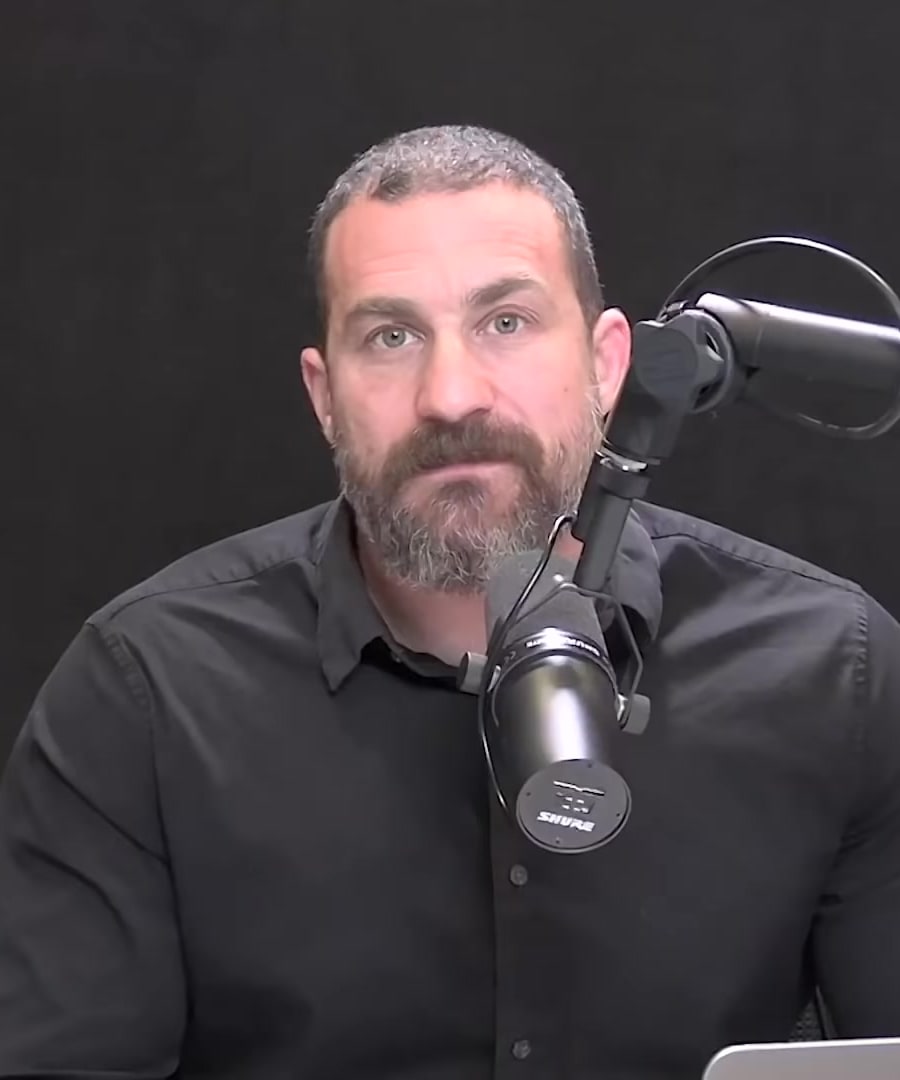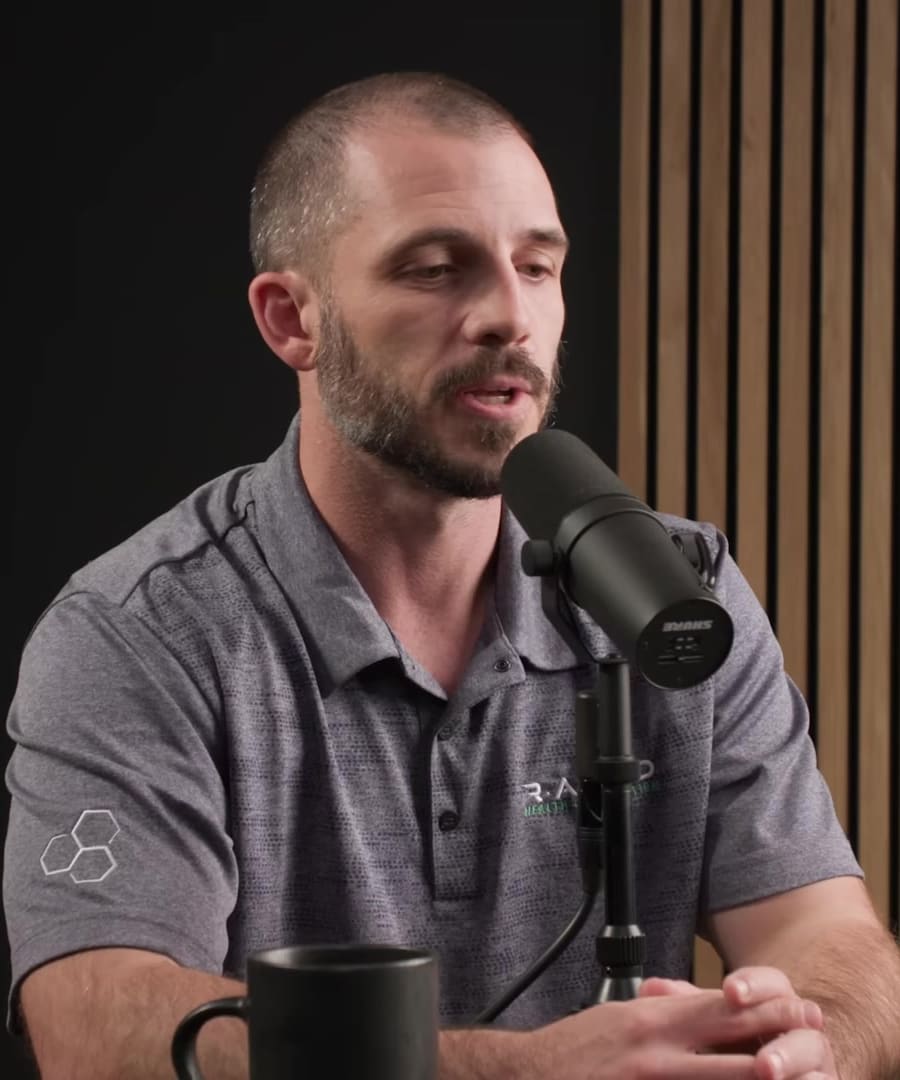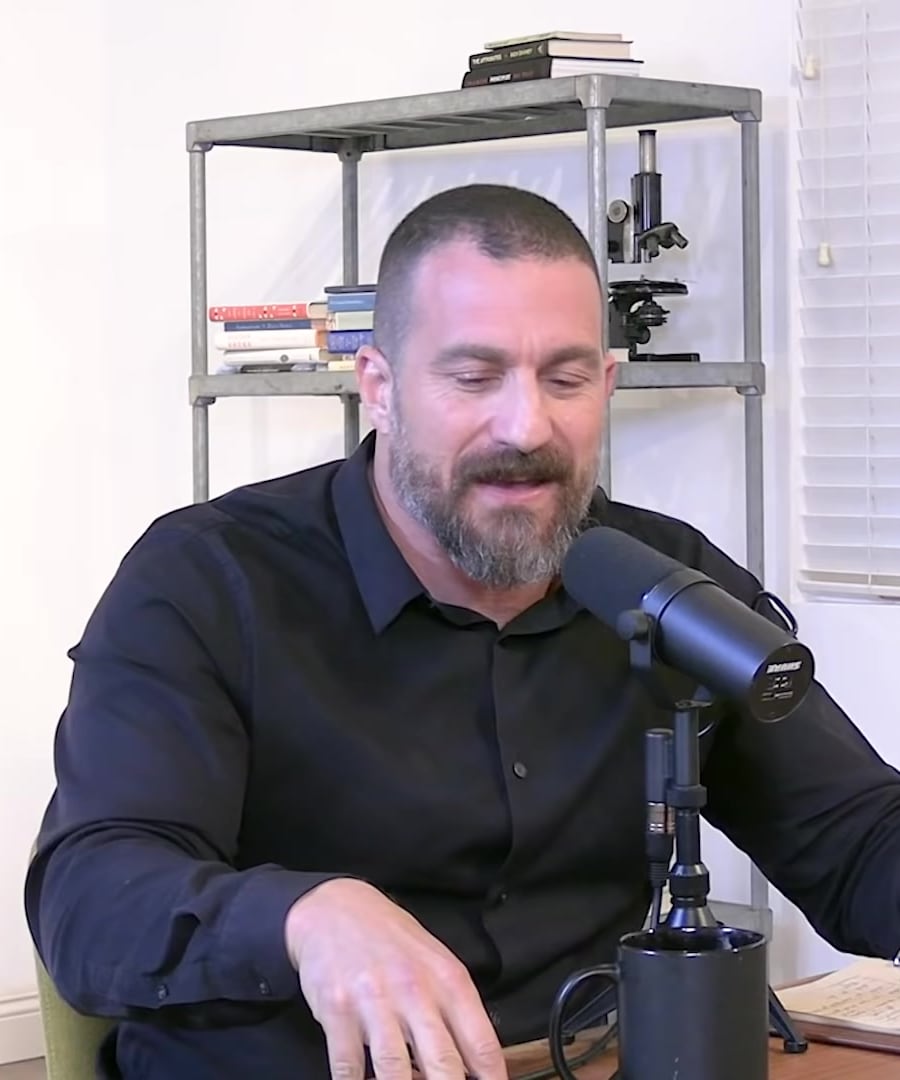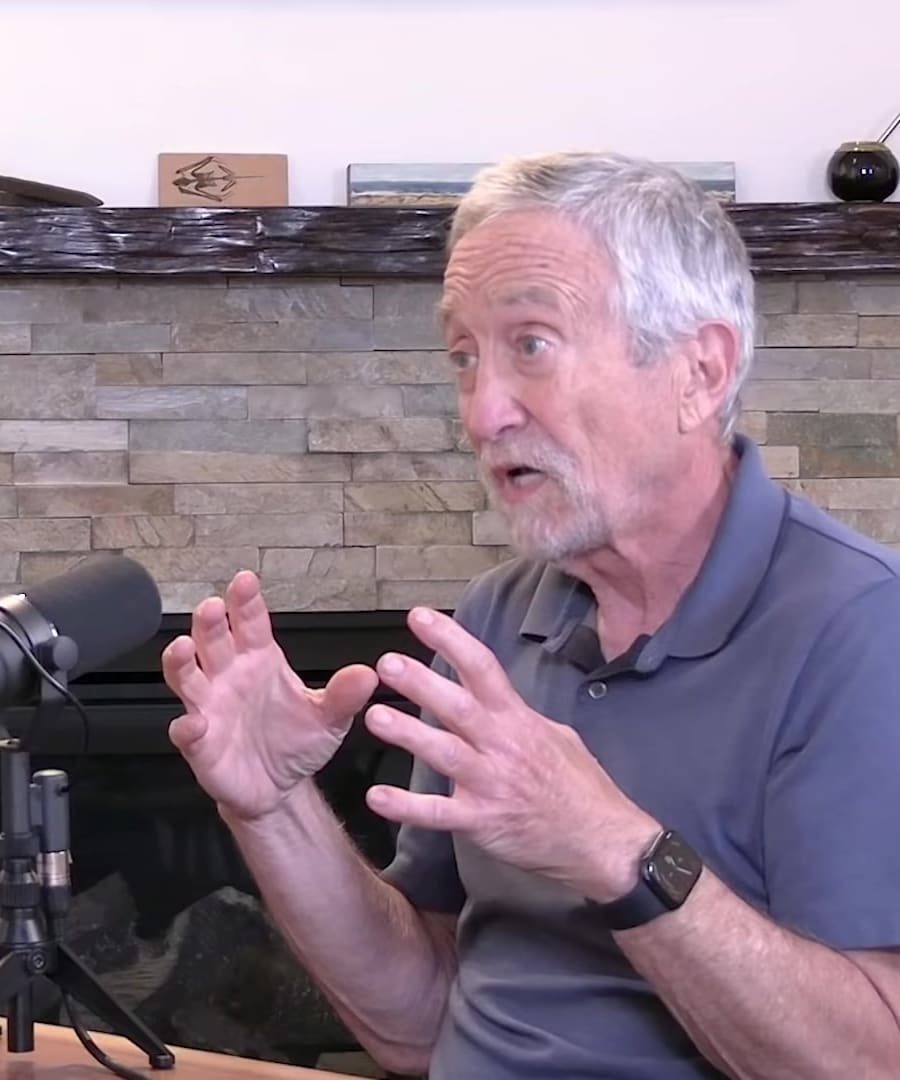What are the best supplements to take for sleep?
Sources:
For better sleep, the suggests several supplements and also emphasizes certain behavioral modifications. Here are the key points and recommendations shared by :
Sleep Supplement Recommendations
- Magnesium Threonate or Bisglycinate: These forms of magnesium can shorten the time it takes to fall asleep and may enhance the depth of sleep due to their ability to cross the blood-brain barrier. The recommended dose is around 200-400 mg before bedtime 1.
- Apigenin: A derivative of chamomile, apigenin can help reduce anxiety and make it easier to fall asleep. It's advisable to be cautious with apigenin as it can also act as an estrogen inhibitor 2.
- Theanine: Theanine, often found in doses between 100-400 mg, can aid in falling asleep by engaging GABA pathways. However, it may lead to vivid dreams for some people, which could disrupt sleep 3.
- GABA: Dr. Huberman occasionally takes 100 to 200 milligrams of GABA to enhance sleep but does so no more than three or four nights a week to avoid dependency 4.
Lifestyle Factors
- Caffeine Intake: Limiting caffeine after 2:00 p.m. can improve one's ability to fall and stay asleep at night 5.
- Food and Eating Habits: Avoiding food within 2 hours before bedtime helps with sleep quality. However, avoid going to bed too hungry 5.
Conclusion
- Always consult your healthcare provider before starting any new supplement regimen due to the potential for interactions or side effects 6.
- Be cautious of supplement dependency and try to avoid daily use for those supplements not intended for such frequent consumption, like GABA 4.
Indirect but Related Content
- For enhanced cognitive support and neuroprotection, magnesium supplements are also thought to be useful, although there's less data supporting these benefits 1.
- If you suffer from waking up during the night due to vivid dreams, consider avoiding theanine supplementation 3.
This information includes a holistic approach to improving sleep through both supplements and adjustments to daily habits.
Do red light glasses after sunlight work?
Sources:
Using red light glasses or red light therapy in the evening can be beneficial, especially if you're seeking to minimize exposure to artificial blue light and other bright sources that can interfere with your sleep. has explored the effects of red light extensively on the .
Key Insights:
- Evening Routine: Rick Rubin, a guest on the podcast, wears red light glasses in the evening to wind down and avoid exposure to stimulating bright lights. This practice helps create a more natural environment in the evening, which can be beneficial for sleep (1).
- Safety and Efficacy: When using red light for health benefits, it's crucial to ensure that it's not excessively bright, as this can harm your eyes. Red light at specific wavelengths (670 nm and 790 nm) has been shown to be effective for certain biological benefits (2).
- General Benefits: Red light therapy has been shown to improve cellular and organ health, including muscle recovery, skin health, and even vision. These benefits can complement natural sunlight exposure (3).
Therefore, using red light glasses after sunset can indeed help reduce sleep-disrupting blue light exposure, aiding in better sleep quality. Always ensure that any light source you use is comfortable and not overly bright to protect your eyes.
RELATED QUESTIONSOrganic?
Sources:
The term "organic" wasn't discussed specifically in the retrieved clips. If you could provide additional context or specify the topic (such as organic foods, organic therapies, or anything else), I’ll do my best to find relevant insights from the .
RELATED QUESTIONSAre there any episodes about organic foods?
It appears there are no specific episodes from the that focus exclusively on organic foods. If you have any other topics or questions in mind, feel free to ask!
RELATED QUESTIONSDo any episodes mention the benefits of organic food?
Sources:
The discusses the benefits of consuming organic or minimally processed foods in several clips:
-
Nutrition and Skin Health: and dermatologist discuss how a well-balanced diet, low in processed foods, can reduce inflammation and result in healthier skin. They emphasize the importance of maintaining a healthy gut microbiome, which benefits from minimally processed foods 1.
-
Real Food Revolution: points out that the root cause of many health issues in the U.S. is the consumption of ultra-processed, nutrient-depleted foods. She advocates for eating real, unprocessed food from good soil to meet the cellular needs of the body, reduce obesity, and prevent chronic diseases 2.
-
Satiety and Weight Loss: In the same episode, highlights how nutrient-dense foods like black beans, berries, and colorful vegetables can help communicate satiety to your cells, reducing cravings. adds anecdotal evidence about his friends' successful weight loss by focusing on high-quality proteins, fruits, and vegetables, and limiting processed foods 3.
These discussions emphasize the overarching theme that consuming whole, unprocessed foods can significantly benefit various aspects of health, including skin health, metabolic health, and weight management.
RELATED QUESTIONS-
How long should I stay in a cold punch?
Sources:
For cold plunges, provides the following guidance regarding duration and safety:
Short Duration Exposure Protocol
If aiming to increase dopamine levels:
- Duration: 30 seconds to 2 minutes, with a possible extension to 3 minutes depending on tolerance.
- Frequency: Incorporate this early in the day for better dopamine effects.
- Temperature: Ranges between 37°F to 55°F, but start warmer and gradually reduce the temperature 1.
Extended Duration Exposure Protocol
- Duration: 45 to 60 minutes in slightly warmer water, around 60°F.
- Benefit: Extended dopamine increases without needing extremely cold temperatures.
- Practicality: This method is less practical for most people's schedules but is effective 1.
Weekly Recommendations
For general health benefits:
- Duration: Aim for a total of 11 minutes per week, which can be split into multiple shorter sessions.
- Frequency: Adjust based on individual tolerance and objectives, but consistent exposure is key.
- Adaptation: As comfort with cold exposure increases, you can decrease temperature or increase duration to maintain effectiveness 2.
Additional Tips
- Safety First: Always ensure the temperature and duration are tailored to your comfort and safety levels. Start with milder cold exposure and gradually progress 3.
- Adaptation: As you get used to cold exposure, your ability to endure the cold will improve, which means you can adjust duration and temperature accordingly 4.
In summary, begin with 30 seconds to 2 minutes of cold exposure at a tolerable but uncomfortably cold temperature, aiming to gradually increase both time and chilliness while prioritizing safety.
RELATED QUESTIONSHow long should I stay in a cold plunge?
Sources:
The duration for staying in a cold plunge depends on the desired outcomes and personal tolerance. provides the following guidelines:
Short Duration for Dopamine Boost
- Duration: 30 seconds to 2 minutes, potentially extending to 3 minutes.
- Frequency: Ideally early in the day.
- Temperature: Between 37°F to 55°F.
- Primary Benefits: Long-lasting increase in baseline dopamine levels 1.
Longer Duration
- Duration: 45 to 60 minutes.
- Temperature: Around 60°F.
- Primary Benefits: Similar dopamine increases without the need for extremely cold temperatures, though this method is less practical for most people 1.
Weekly Recommendations
- Total Duration: Aim for 11 minutes per week, which can be split into multiple shorter sessions.
- Frequency: Adjust based on individual tolerance and objectives, ensuring you start at a comfortable threshold and gradually advance 2.
Safety Tips
- Introduction: Ease into colder temperatures gradually to avoid shock or potential heart hazards.
- Support: Ideally, have someone nearby for monitoring during early attempts.
- Breathing: Avoid any form of breathwork or hyperventilation before or during cold exposure to prevent risks 3.
Summary: Start with 30 seconds to 2 minutes of exposure at a tolerably cold temperature, aiming to gradually increase both time and chilliness while prioritizing safety. Always listen to your body's signals and adapt your protocol accordingly.
RELATED QUESTIONSWhat supplements do you use for sleep?
Sources:
recommends several supplements to improve sleep quality. Here are the main ones:
-
Magnesium Threonate or Magnesium Bisglycinate
-
Apigenin
-
Theanine
-
Myo-inositol
- Dosage: 900 mg
- Benefits: Helps with falling back to sleep if you wake up in the middle of the night, also supports mood 5.
-
Glycine and GABA
- These are also mentioned for their sleep-supportive properties 6.
Always consult a healthcare professional before starting any new supplement regimen. Additionally, it’s beneficial to trial one supplement at a time to assess its impact 3.
RELATED QUESTIONS-
What protein bars?
Sources:
often mentions David bars as his preferred choice when looking for a high-quality protein source. Here are some key points he mentioned about them:
- Protein Content: David bars offer 28 grams of high-quality protein, making it easy to meet protein goals without consuming excessive calories.
- Use Cases: He uses them as a quick snack in the afternoon, sometimes mid-morning, or as a bridge between meals.
- Taste and Consistency: He finds their taste and chewy cookie-like consistency surprisingly delicious, more so than other protein bars.
- Convenience: They're particularly useful when he's in a rush or away from home 1.
If you want to try them, you can visit davidprotein.com huberman.
RELATED QUESTIONSIs there a discount code for David protein bars?
Currently, there's no specific mention of a discount code for David protein bars in the available data from . If you want to keep up-to-date on potential discounts or promotions, it might be worthwhile to check out the David protein website regularly or follow on his social media platforms where he might share such information.
RELATED QUESTIONSNeuromag?
Sources:
has discussed the benefits of magnesium, particularly for cognitive function and neuroplasticity. He highlights that magnesium can enhance long-term potentiation (LTP), which is crucial for learning and memory. However, a challenge with magnesium supplementation is ensuring it crosses the gut barrier to reach the bloodstream effectively.
mentions that most magnesium salts do not easily pass from the gut to the bloodstream. High doses of typical magnesium supplements can cause diarrhea, making them impractical for regular use. This underlines the importance of using specific forms of magnesium, which are more bioavailable and effective for brain health. This context is critical for choosing a supplement like Neuromag, which aims to overcome these limitations 1 2.
RELATED QUESTIONSIs there a particular brand recommended?
Sources:
has not recommended any specific brand of magnesium supplements directly. However, he frequently discusses the benefits of specific forms of magnesium, such as Magnesium Threonate and Magnesium Bisglycinate, for promoting sleep and cognitive support. These forms are known for their ability to cross the blood-brain barrier and enhance sleep depth and cognitive function 1 2.
If you are looking for a trusted brand, it’s advisable to search for reputable supplement manufacturers who offer these specific forms of magnesium and check for third-party testing to ensure quality and purity.
RELATED QUESTIONS
What are the best supplements to take for sleep?
Do red light glasses after sunlight work?
- RELATED QUESTIONS
Organic?
- RELATED QUESTIONS
Are there any episodes about organic foods?
- RELATED QUESTIONS
Do any episodes mention the benefits of organic food?
- RELATED QUESTIONS
How long should I stay in a cold punch?
- RELATED QUESTIONS
How long should I stay in a cold plunge?
- RELATED QUESTIONS
What supplements do you use for sleep?
- RELATED QUESTIONS
What protein bars?
- RELATED QUESTIONS
Is there a discount code for David protein bars?
- RELATED QUESTIONS
Neuromag?
- RELATED QUESTIONS
Is there a particular brand recommended?
- RELATED QUESTIONS





